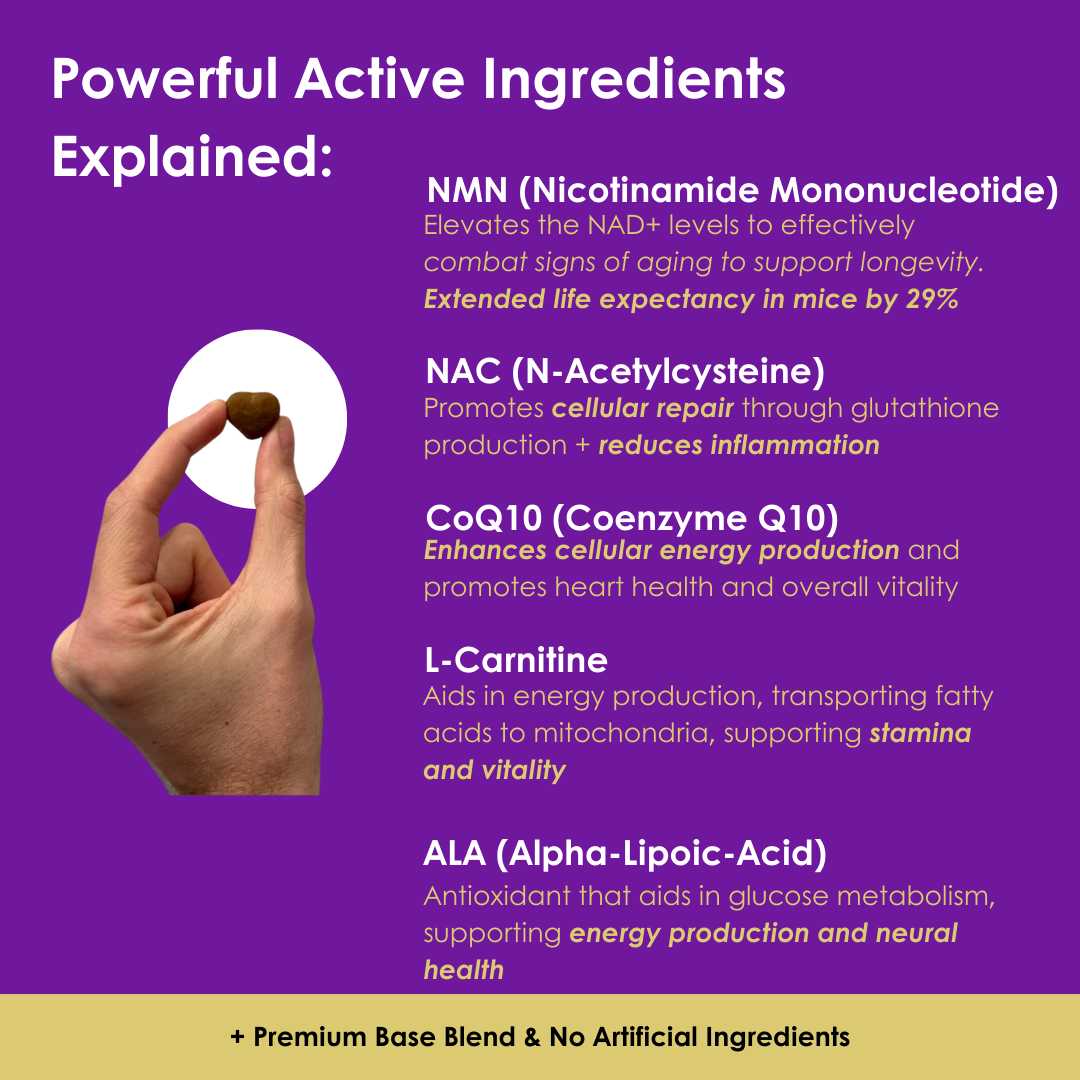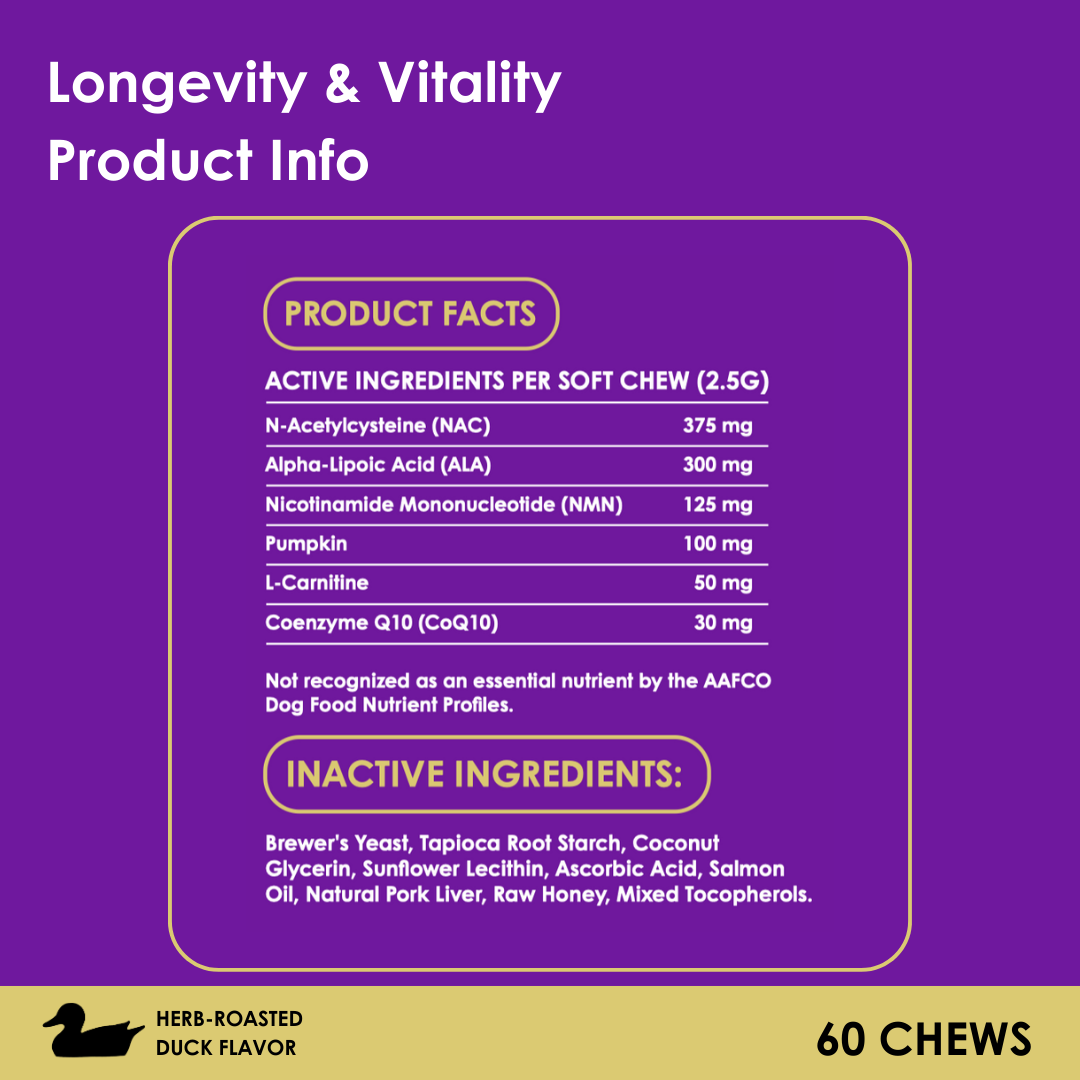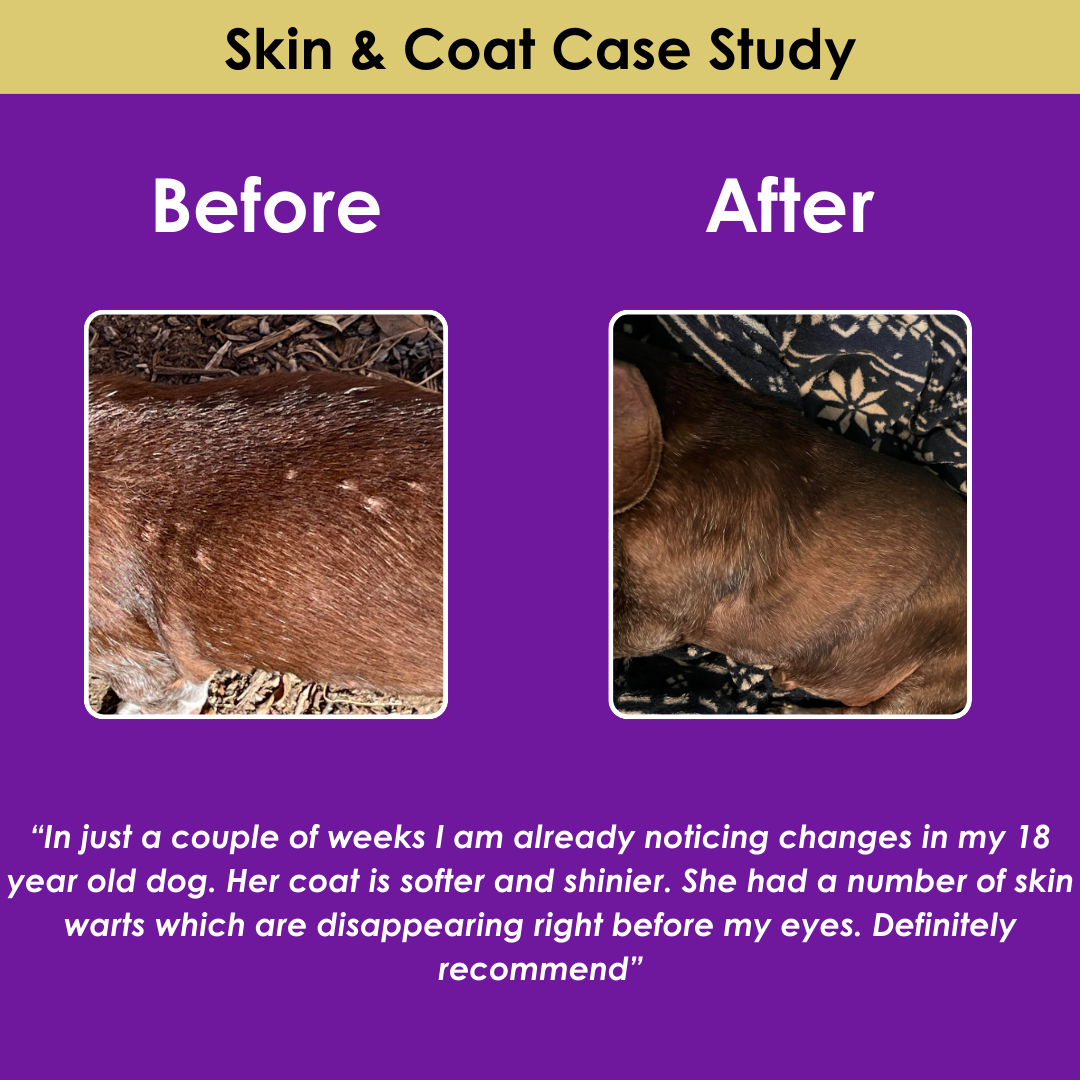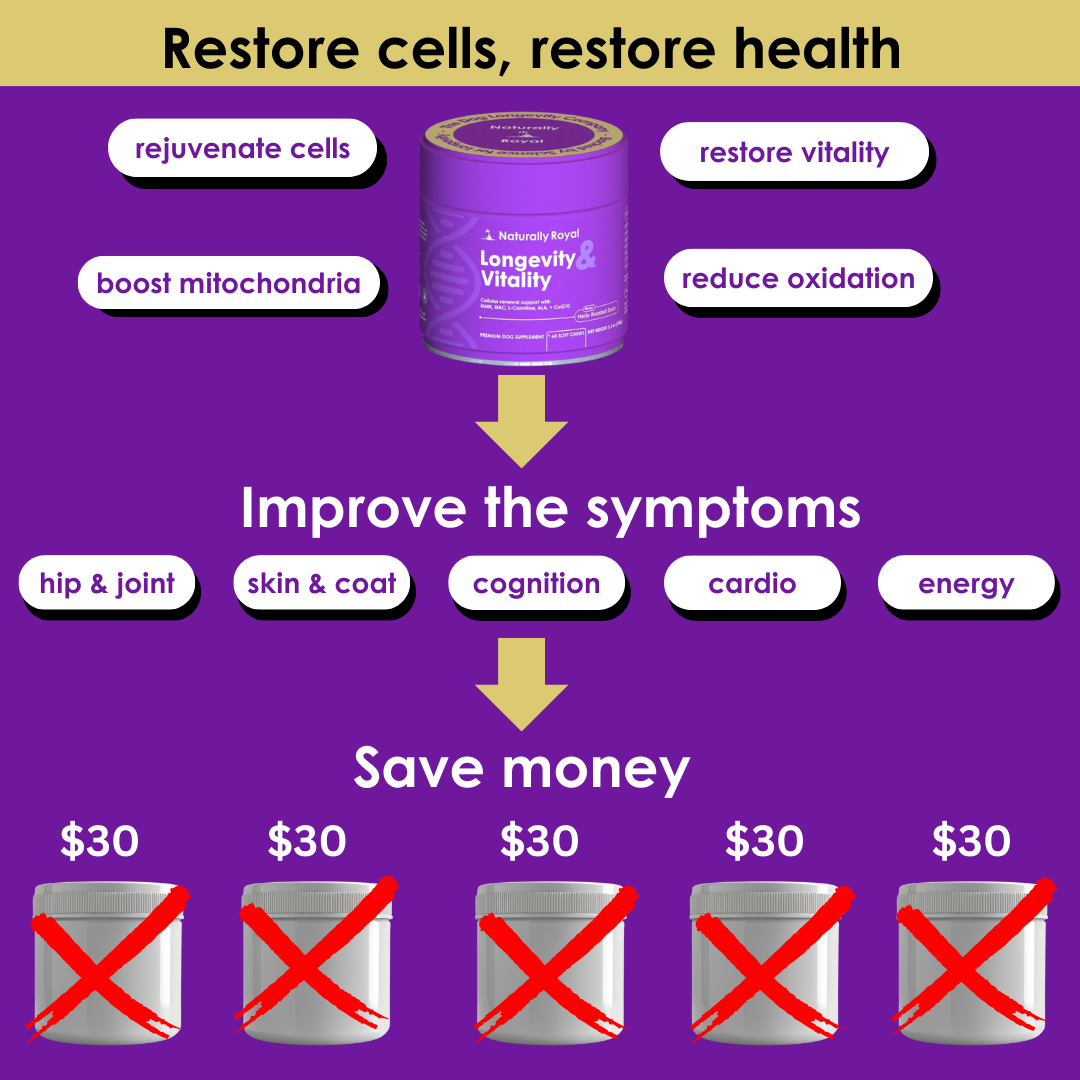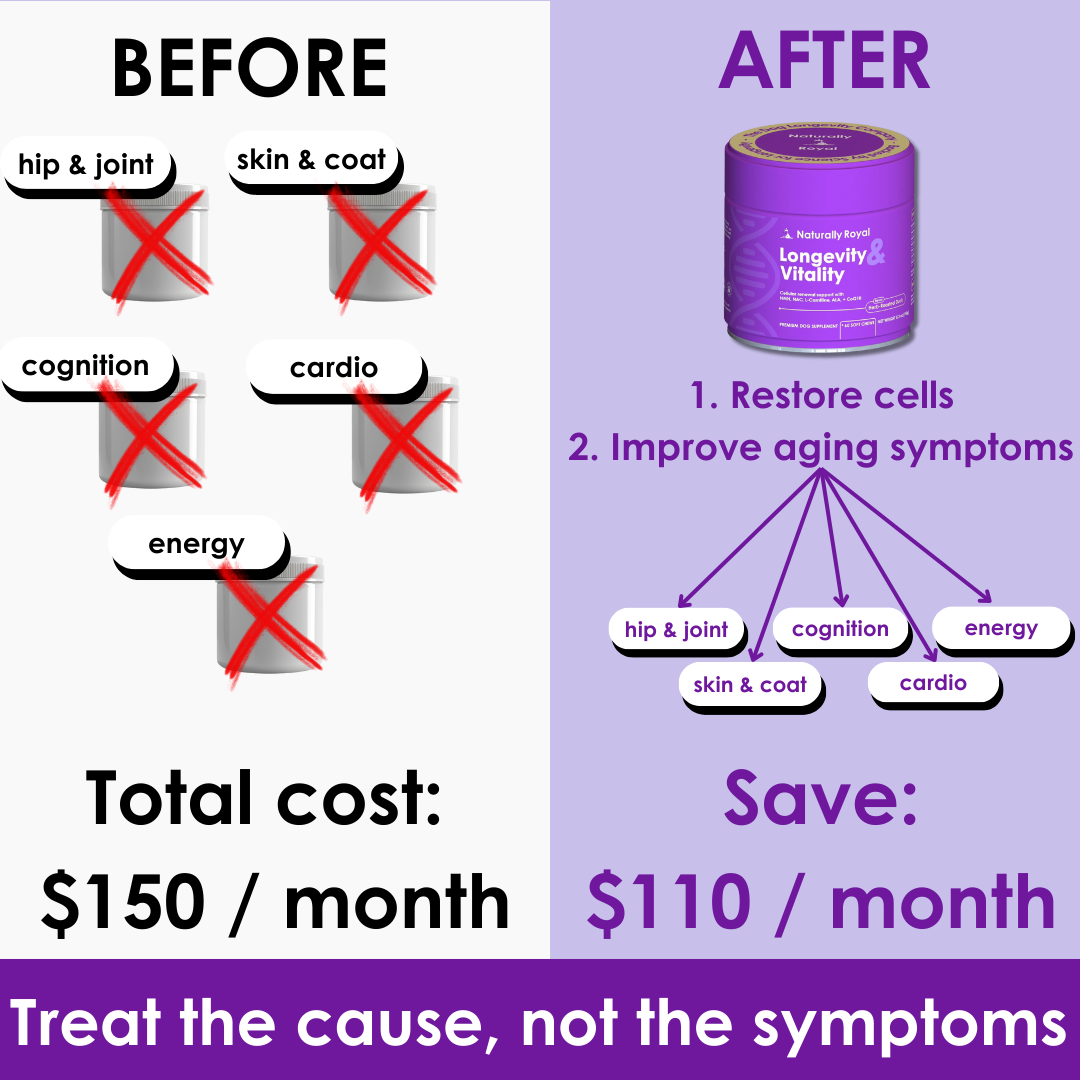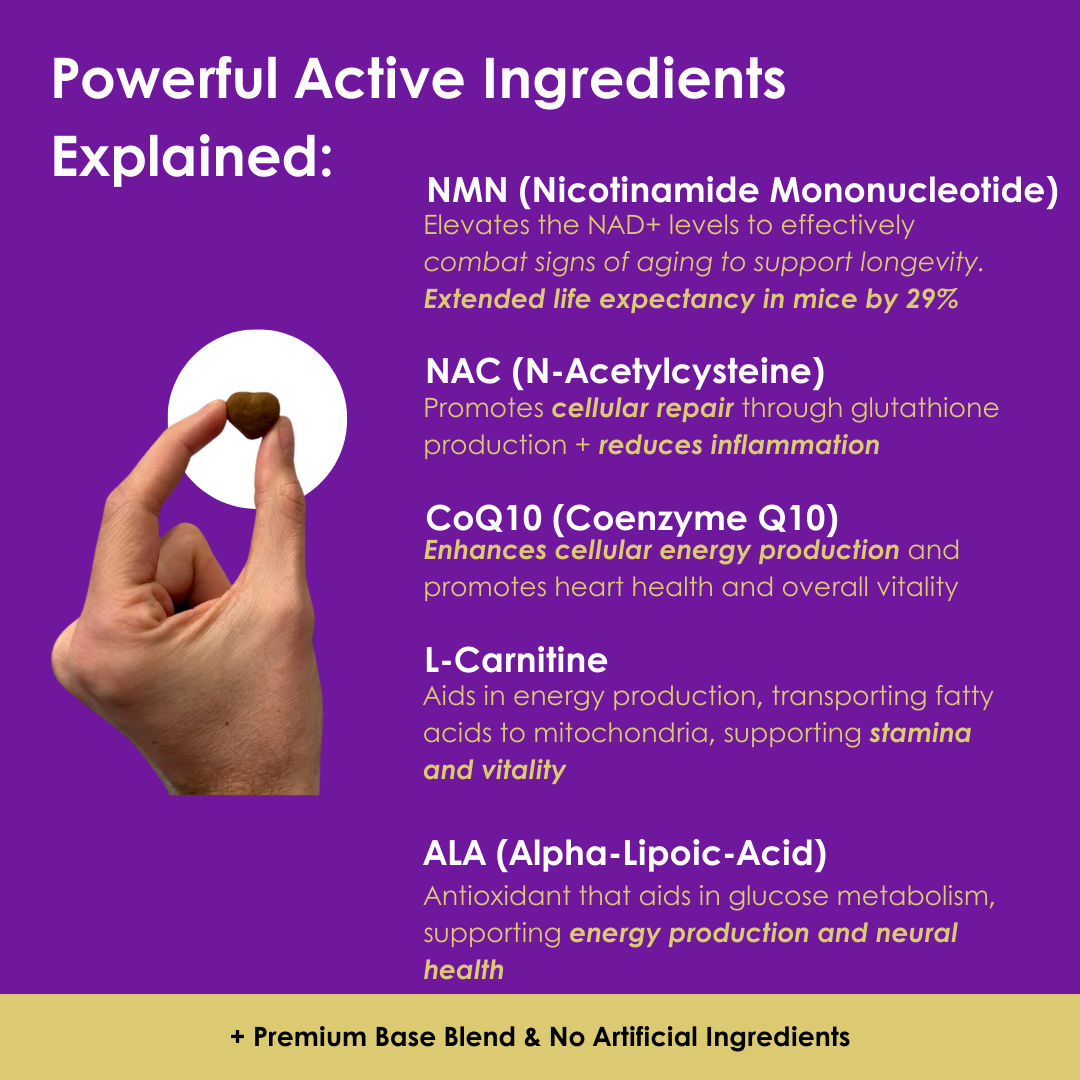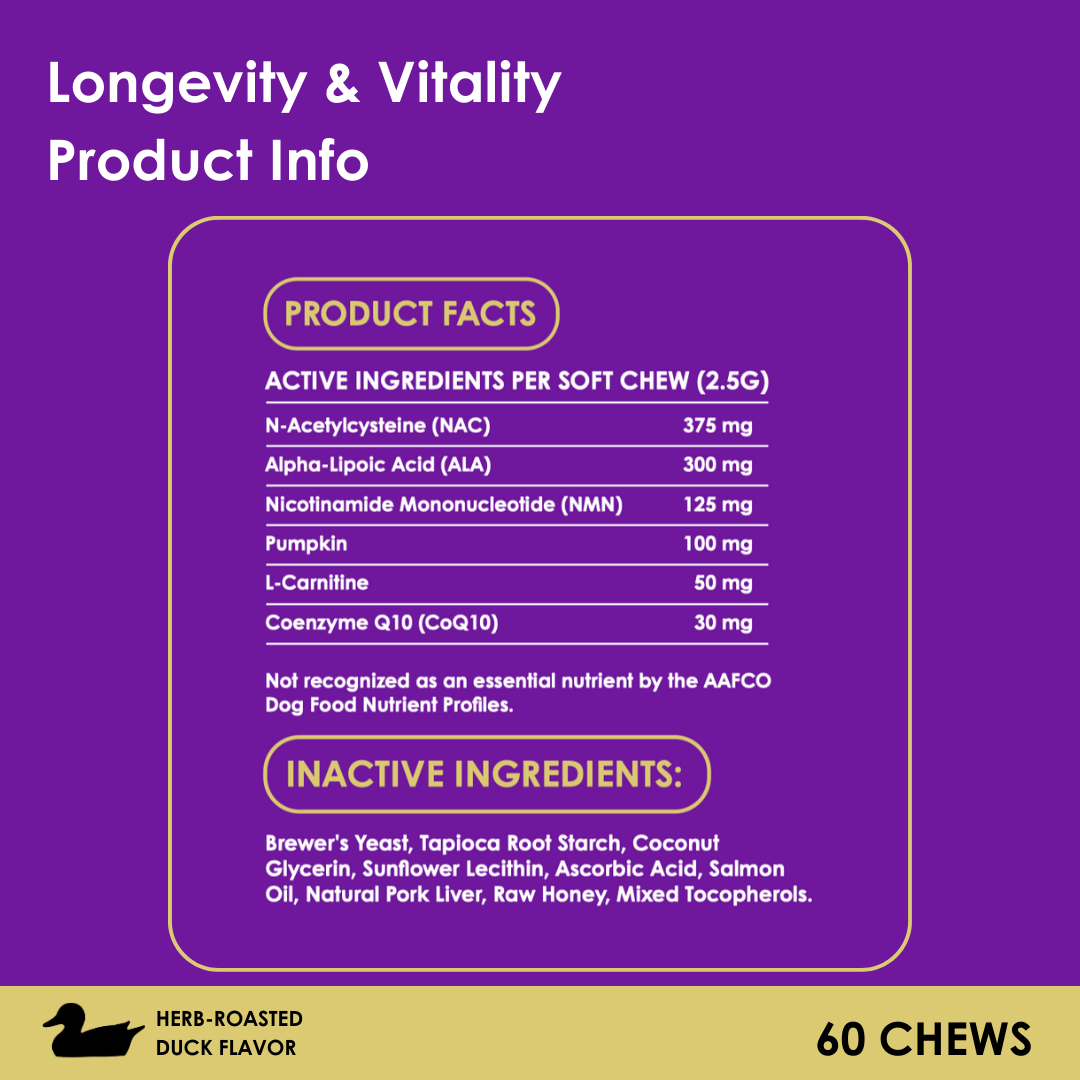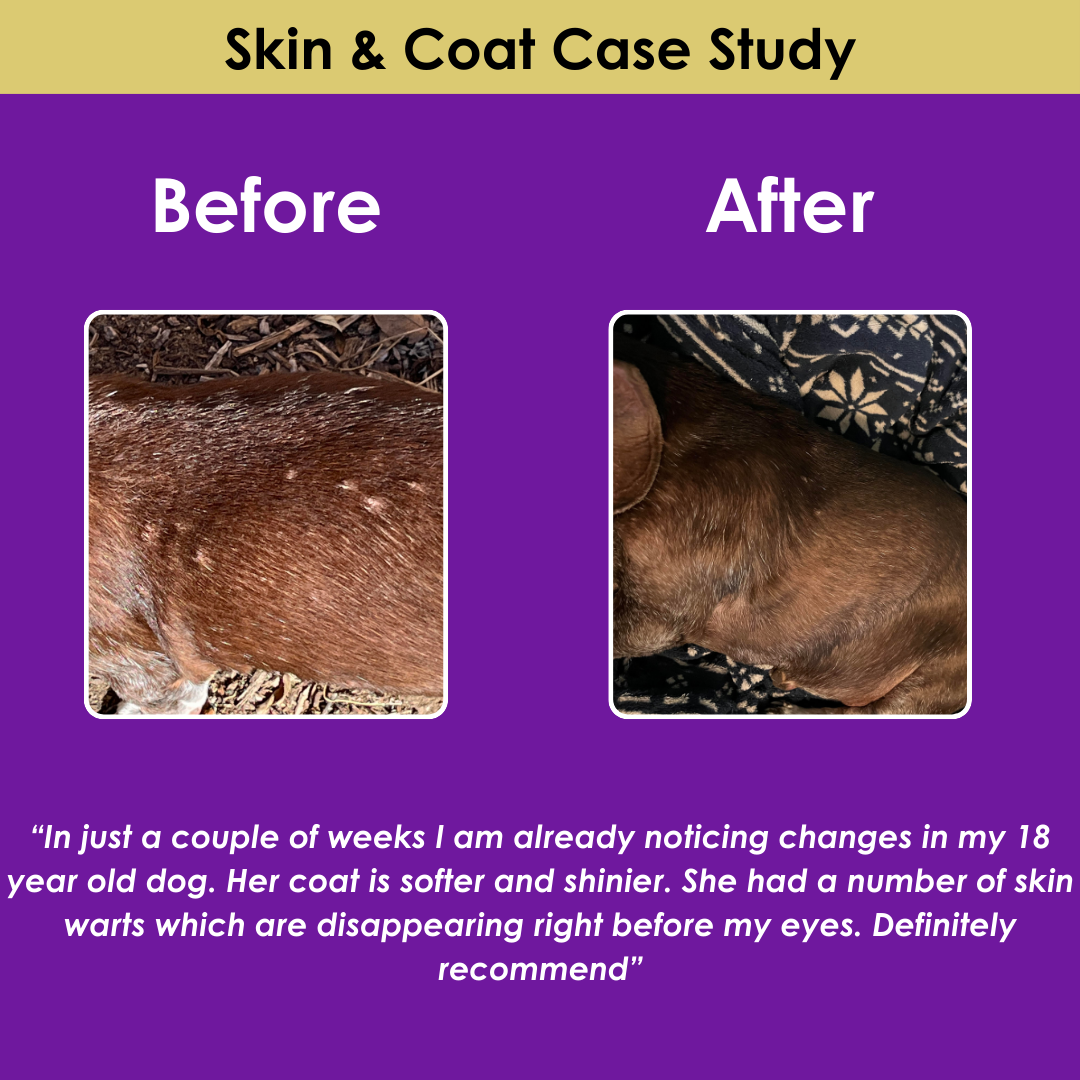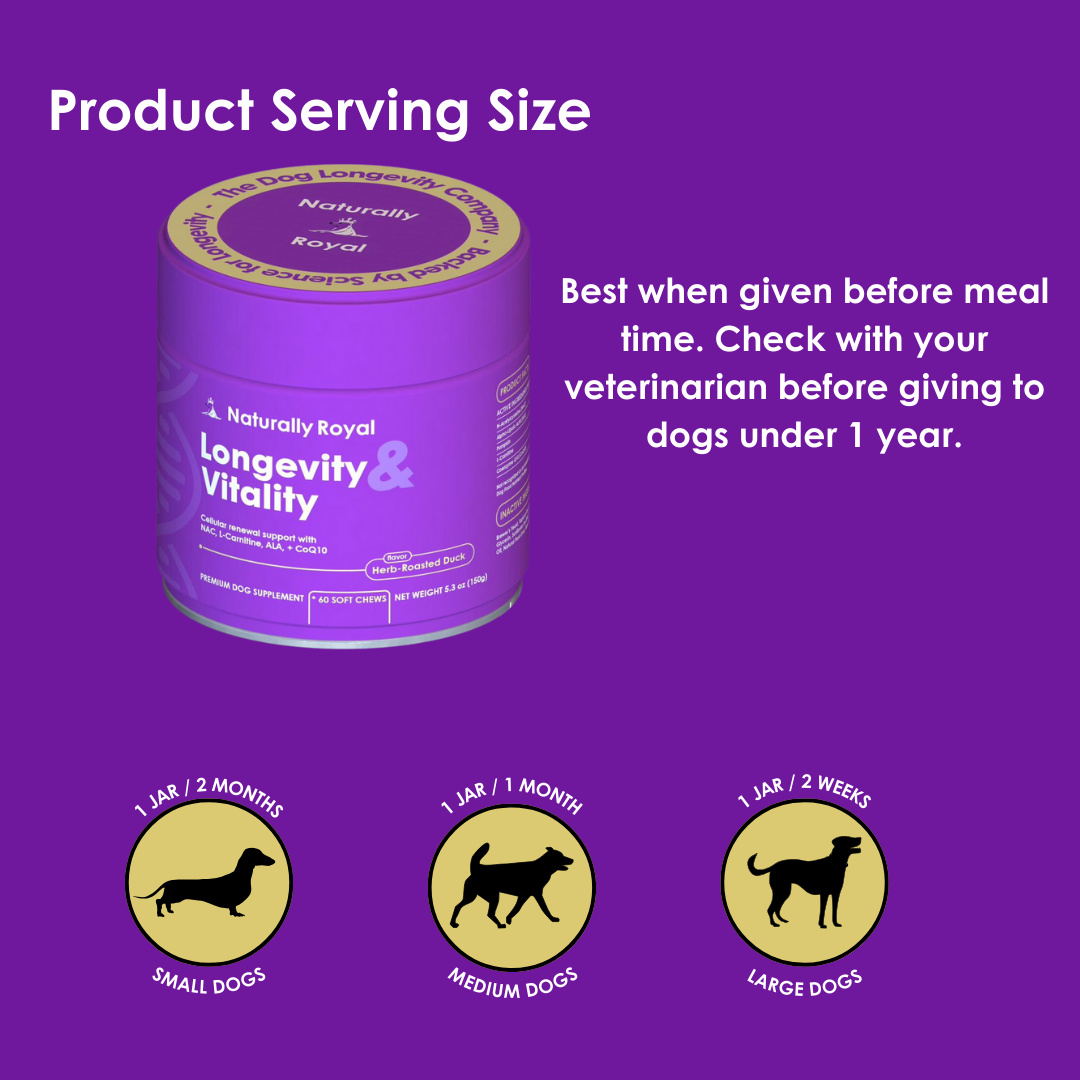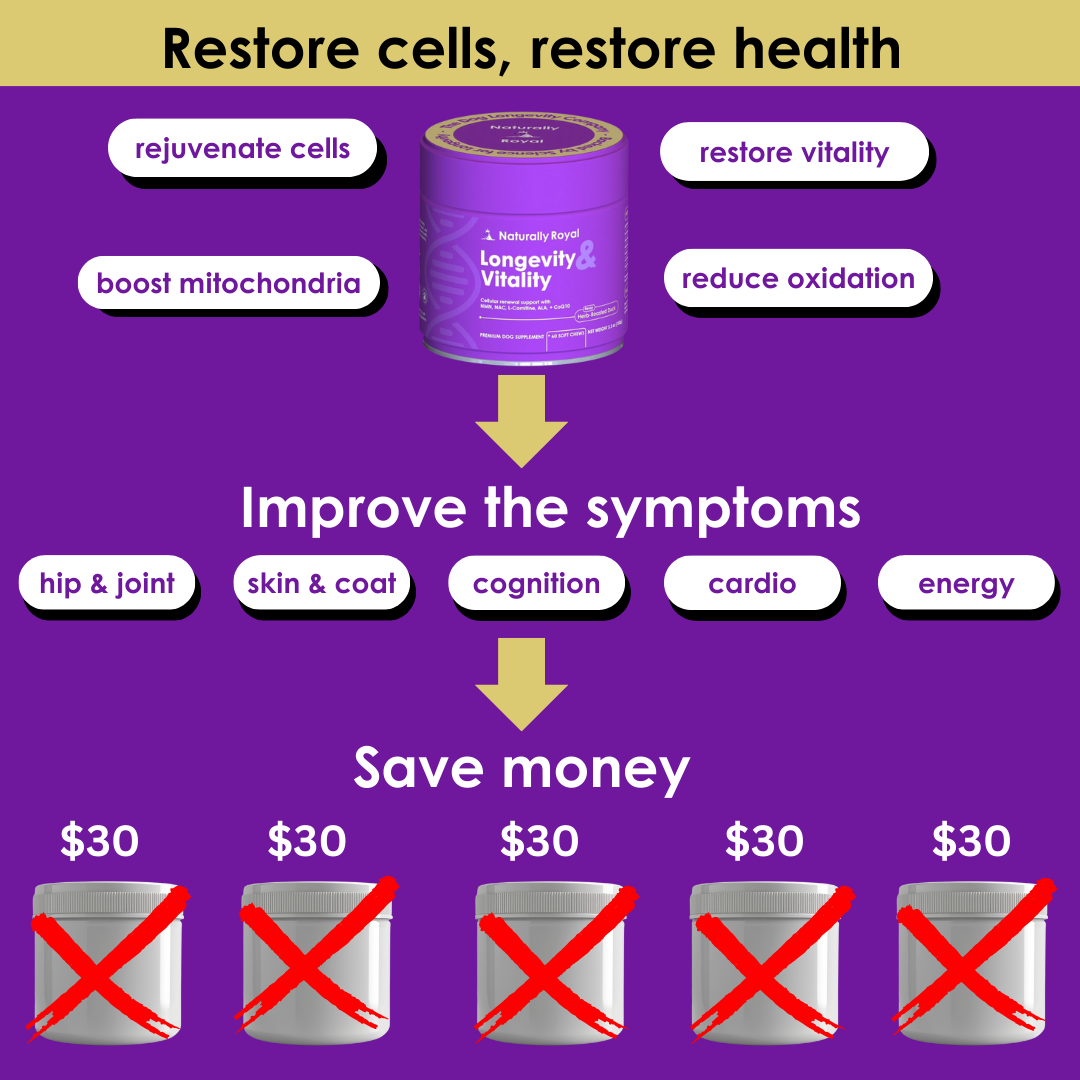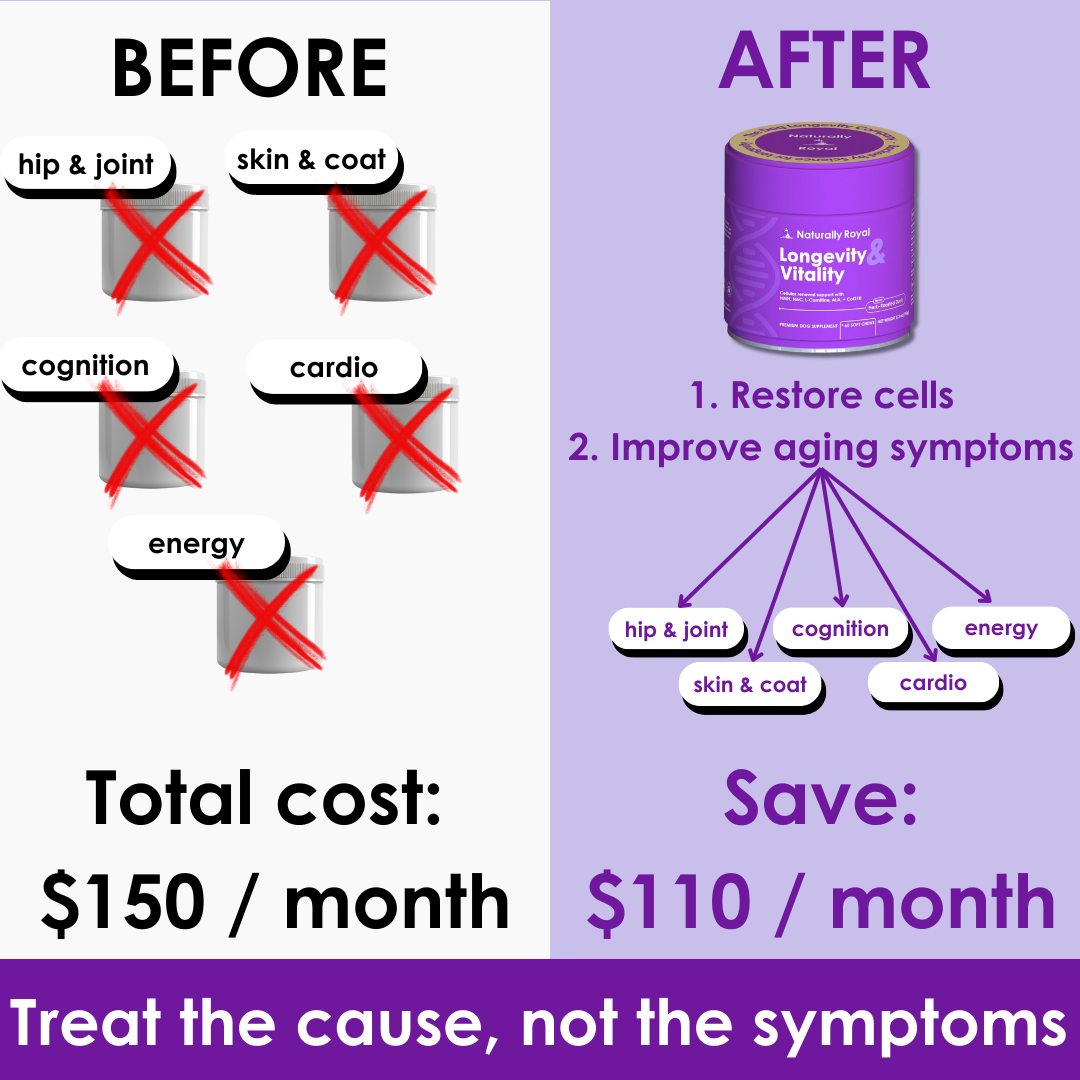What Does My Dog's Nose Say About Their Longevity?
Have you ever noticed your dog’s nose could say about their overall health? A dog’s nose is not just an organ of smell; it's a telltale indicator of their overall health and can give insights into their longevity. Here's how to interpret the signs so that we can help support their longevity:
1. Moisture Level: A Sign of Hydration
A healthy dog's nose is usually cool and moist. This natural wetness helps enhance their ability to capture scent particles from the air, making their sense of smell remarkably sharp. If your dog’s nose is dry and cracked, it might be a sign of dehydration, which can quickly escalate into more serious health issues if not addressed. Make sure your dog has constant access to fresh water and monitor their hydration levels, especially during hot days or after exercise.
2. Temperature and Discharge: Indicators of Infection
While it’s normal for a dog’s nose to vary between warm and cool throughout the day, a nose that’s consistently hot to the touch might signal a fever or infection. Additionally, any unusual discharge, such as pus or blood, could indicate a bacterial or fungal infection, or even more serious conditions like a nasal tumor. Regularly checking your dog’s nose for any abnormalities and consulting with your vet can catch these issues early and improve your dog’s chances for a long, healthy life.
3. Color and Texture: Clues to Underlying Conditions
Changes in the color or texture of your dog’s nose can reveal much about their health. A pale or white nose might indicate anemia, while a nose that’s turning pink could suggest a condition known as nasal depigmentation or "snow nose," which is typically harmless. However, if you notice any excessive crusting, scaling, or changes in the texture of the nose, it could be a sign of autoimmune diseases or skin disorders that require medical attention.
4. Breathing Patterns: Signals of Respiratory Health
Pay attention to how your dog breathes through their nose. Labored breathing, constant sneezing, or a chronic runny nose could indicate respiratory infections, allergies, or even obstructions in the nasal passages. Maintaining a clean environment, free from dust and allergens can help ensure that your dog’s respiratory system remains healthy.
5. Sniffing Ability: A Measure of Sensory Health
A dog’s sense of smell is their most powerful sense and an essential part of how they interact with the world. A noticeable decline in your dog’s ability to sniff out their favorite treats or toys could be a sign of nasal or neurological issues. Engaging your dog in scent-based games and providing a stimulating environment can help keep their olfactory senses sharp and contribute to their overall well-being and longevity.
Ensuring Nose Health for Longevity
To keep your dog’s nose and overall health in peak condition, consider the following tips:
- Proper Hydration: Ensure your dog always has access to clean water.
- Balanced Diet: A nutritious diet supports overall health, including the skin and coat around the nose.
- Environmental Management: Keep your living area clean and free of excessive dust, chemicals, or allergens that could irritate your dog’s nose.
- Mental Stimulation: Keep your dog’s mind and senses engaged with regular play and training.




